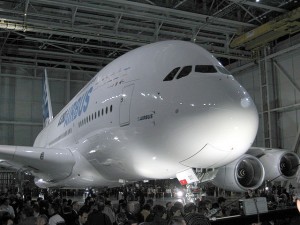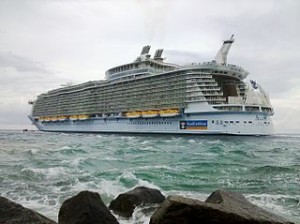
Air Bus 380
An Introduction to C++ for Computer Language — Basics
Description: Nowadays almost all sophisticated engineering equipment contain embedded controllers of one form or another which impart artificial intelligence for systems to take decisions autonomously. Central to such applications are the software modules stored in the controller memory. C and C++ are the defacto industry standard languages for writing such software. Object-orientation is the most up to date method of software development. The paradigm allows computer modeling of the world around us in a simple and straightforward fashion. It also allows rapid development of high quality software using a number of superlative library classes developed by several well-known software houses. Object-oriented software also enjoys the benefit of ease in maintenance to an extent not possible using usual procedural languages like Pascal, Fortran or C. This course is suitable for those who are familiar with the C language. It is a prerequisite to a further advanced course in C++ or for programming in Microsoft Windows. Inexpensive and widely used Microsoft Visual C++ compiler will be used, and there will be ample opportunity for hands-on experience using PCs. It should be noted that most of the topics covered in this course are also features of other C/C++ compilers, like Borland, Diab Data or Unix C++ compilers.
Objectives: On completion of the course the participants should be able to:
- Appreciate the principles of object-oriented programming.
- Produce C++ code for off-line calculations, and on-line computer control in real-time or in accelerated time.
- Design and implement complex systems in C++.
- Have a working knowledge of industry standard Microsoft C++ compiler, and Integrated Development Environment (IDE).
- Use Microsoft Windows NT.
This course will be available each Wednesday, June 10th, 1998 from 8:00 am till 4:30 pm for eight consecutive weeks. Each weekly module will consist of a lecture reinforced with extensive laboratory sessions.
Audience:
- Any C programmer who is keen to program in object oriented language C++.
- Any engineer literate in C who wishes to gain object-oriented programming skills in C++.
- The course will be suitable for anyone who is educated to at least high school graduate level in mathematics and science subjects.
Prior Experience:
- A familiarity with C language, or
- Those who have attended a foundation course such as “An Introduction to Programming in C Language”.
Style of course:
- The course structure will be based on separate but interlinked modules.
- Each module will consist of a lecture which will then be reinforced with extensive laboratory session.
- If time permits, the participants will be encouraged to write and debug their own programs during these laboratory sessions.
- The course will have the style of a workshop where there would be ample opportunity for hands-on experience.
- The course content will be short, simple and to the point. Most relevant and important aspect of the C++ language will be addressed.
- The course will be of sufficient depth so that at the end of the course, the audience will be in a position to pick up finer and intricate details by themselves from books and journals on the C++ language.
- Microsoft NT will be used.

Allure of the Seas Leaving Port Everglades
All Course Program Source Files are provided. The following files should run perfectly on Microsoft Visual C++ or any other valid C++ compiler such as DevC++.
Course Program Source Files
Chapter 1 to 8. Compressed Zip
Course PowerPoint
This will open the course instructions in Microsoft PPT format. This requires Microsoft Power Point 2000 or above to view the document. For any queries and questions email at: ghanisn@yahoo.com
